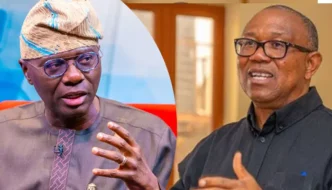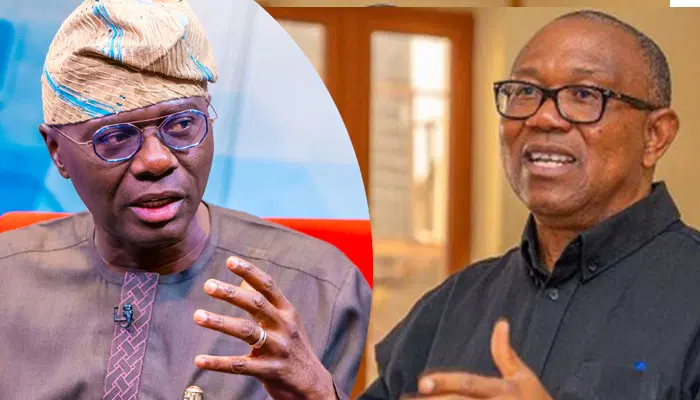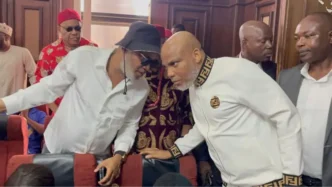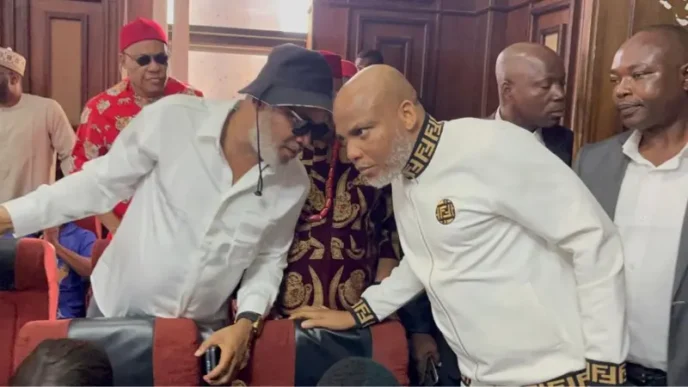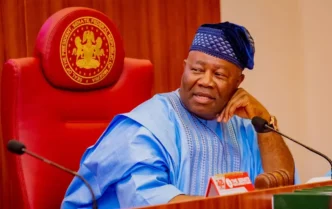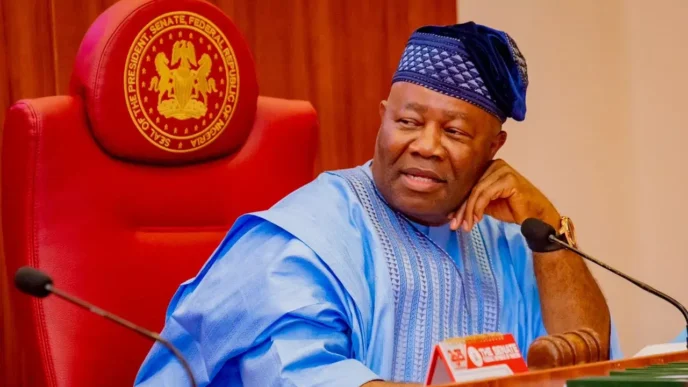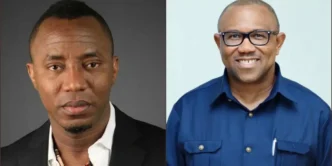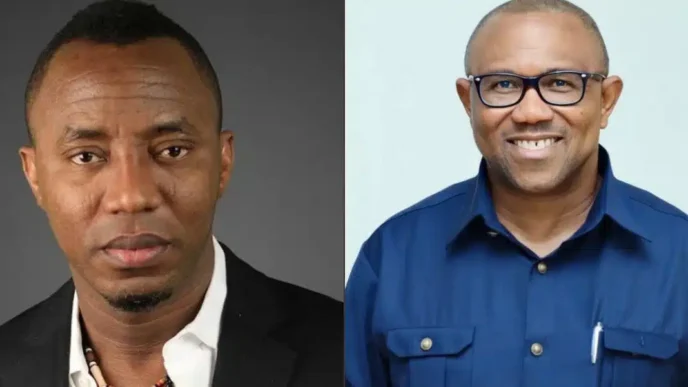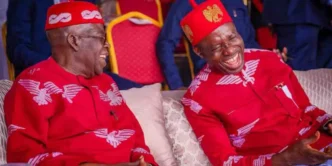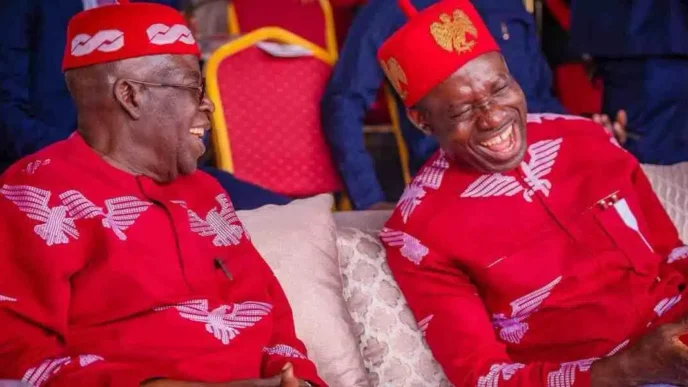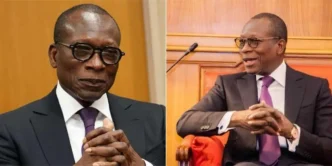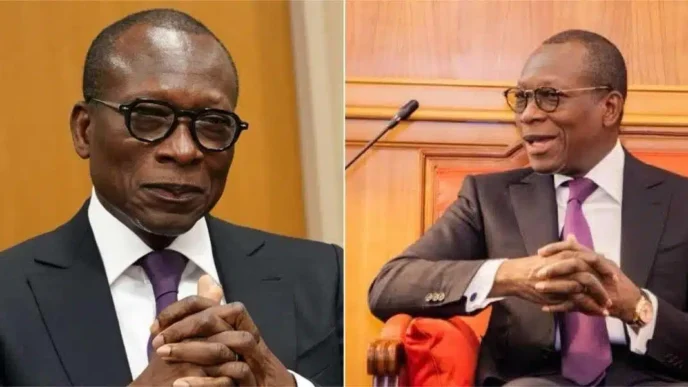A fresh wave of political tension has emerged following former Labour Party presidential candidate Peter Obi’s response to Governor Babajide Sanwo-Olu’s accusation of “demarketing Nigeria” during a recent public event abroad.
Governor Sanwo-Olu had criticized Obi over remarks he made while speaking at Johns Hopkins University in the United States.
In the comments, Obi reportedly highlighted Nigeria’s growing poverty, insecurity, and lack of responsible governance.
Sanwo-Olu said such statements were damaging to the country’s image internationally.
“But after only two years in office, the poverty rate in Anambra jumped to 53.7%. His successor later brought it down,” Sanwo-Olu said.
“So I’m not sure Mr. Obi is morally well-placed to make the alarming claims he made.”
However, Obi swiftly responded during a memorial service for elder statesman Edwin Clark on Wednesday.
Although he avoided mentioning Sanwo-Olu by name, Obi addressed the claims indirectly and provided what he described as factual evidence.
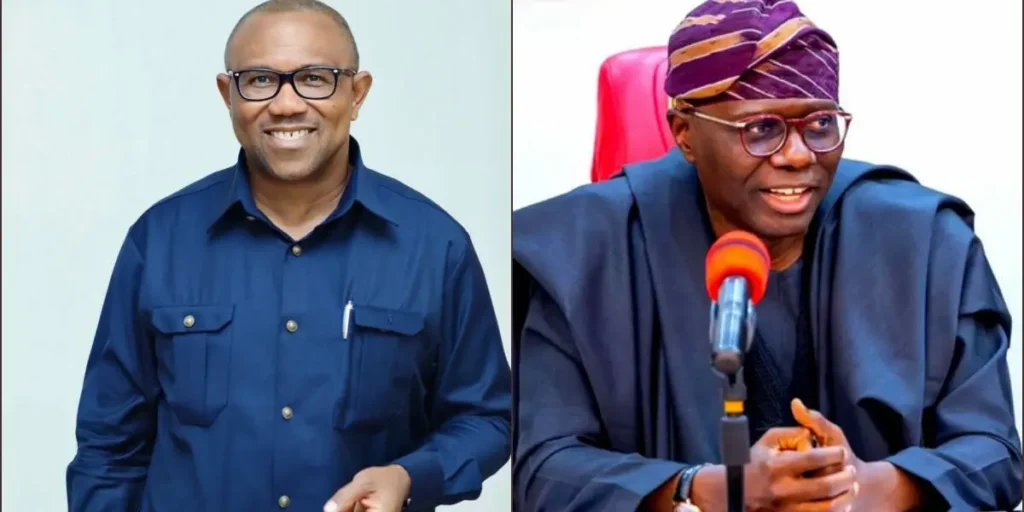
“People say I am demarketing Nigeria. When is truth being demarketed?” Obi asked. “The World Bank has just shown that 75% of Nigerians in rural areas are poor. Is the World Bank demarketing Nigeria?”
Moreover, Obi added weight to his argument by referencing data from UNICEF about the state of child health in the country.
“Nigeria now has the second-highest rate of malnourished children globally, with over 2 million children affected. Are they demarketing Nigeria?” he asked.
Meanwhile, Obi also expressed deep concern about the current state of leadership in Nigeria.
“I listened to my brother Mike when you talked about, ‘may the labour of our heroes past not be in vain,’” Obi said.
“I’m happy that General Gowon is here, Jonathan is here. But I can tell you their sacrifice is in vain.”
Furthermore, Obi criticized the silence of former protesters, comparing past demonstrations to current situations under new leadership.
“We were in this country when people were protesting under Jonathan, when there was no need to protest,” he said.
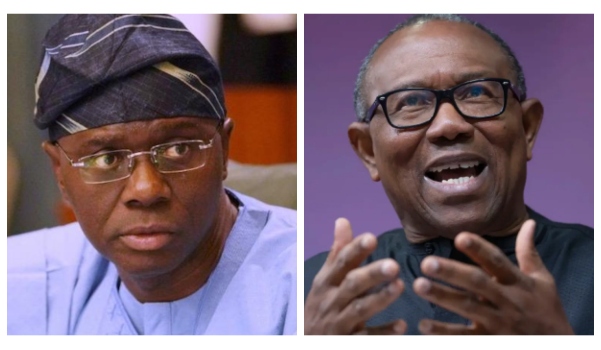
“Jonathan increased fuel from N87 to N120, but when it was N900, they were not protesting. Where are those protesters today? Have they died?”
On the issue of election credibility, Obi took another dig, alluding to recent state elections. “Everybody knows who won that election,” he said, though he avoided direct references to any individual or party.
In addition, Obi’s defense reignites the ongoing national conversation on governance and accountability.
While the political clash between Obi and Sanwo-Olu reflects rising tension, it also emphasizes the need for leaders to prioritize development over personal exchanges.
